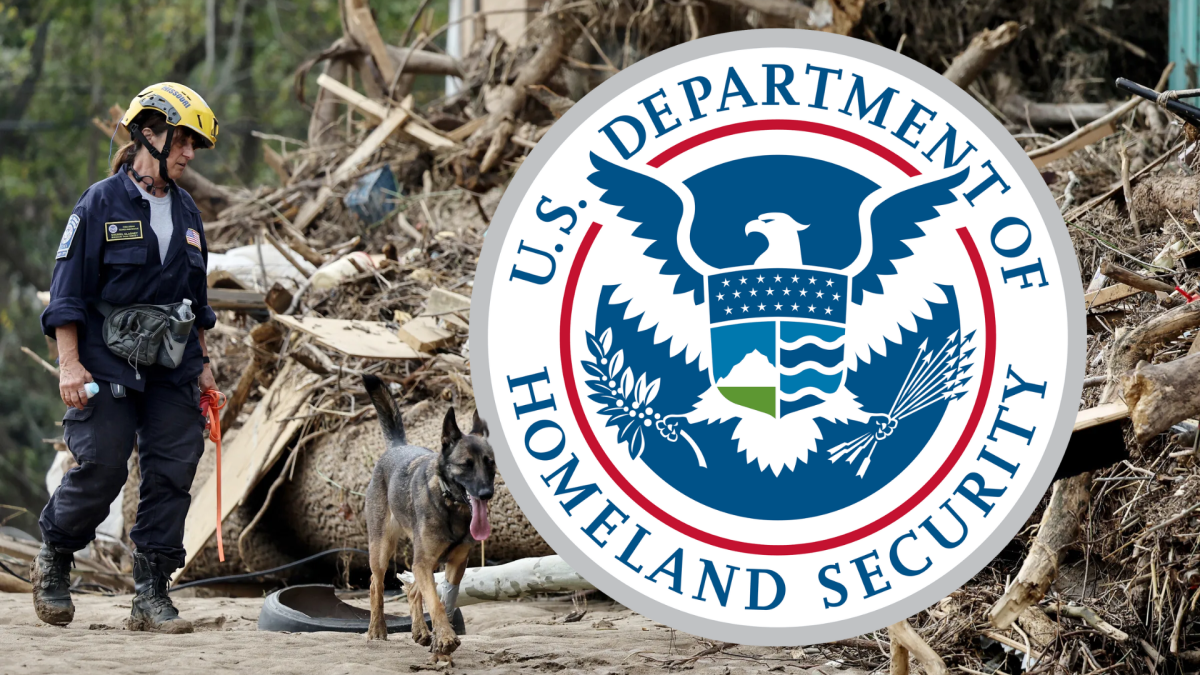There is no denying that the Federal Emergency Management Agency (FEMA), like most federal agencies, is a flawed institution; however, its dissolution would have devastating implications for state and local governments. Communities reeling from the calamities of destructive natural events are, rightfully, quick to criticize FEMA’s bureaucracy, organizational struggle and inability to provide funding to in-need communities efficiently. Simply put, FEMA has too many organizational pitfalls given the necessity of its service, but it has provided immense support to communities. Rather than being scrapped entirely, leaving states to fend for themselves when disaster strikes, FEMA should be acknowledged for what it is: a mismanaged organization with massive potential for improvement.
Dissolving FEMA would not only be an ineffective solution to the issues that FEMA is criticized for but it would also be simply impractical for states and local governments to assume the financial and organizational burden of disaster relief. Kentucky Democratic Governor Andy Beshear, who has dealt with 12 federally declared disasters since taking office in 2019, has pointed to the overhead costs for each state to replicate FEMA’s services as prohibitive and unfeasible. Beyond the large financial burden that states would have to undertake, the range of disaster relief services that FEMA provides, from individual assistance, public assistance and hazard mitigation assistance grants, should be in the federal government’s purview. Forcing states and local governments to develop, organize and train an internal organization meant for disaster relief would place an unnecessary strain on already stretched institutions.
The damages from natural disasters have been increasing year after year, and projects have only become more frequent and devastating with climate change creating more unpredictable weather patterns. Climate change is going to bring a more violent world with extreme weather events, which makes addressing the flaws of FEMA of the utmost importance as it will become a critical organization over the next few years. The crux of many of FEMA’s organizational and response time issues is the lack of annual federal funding that they receive relative to what they project as necessary to function properly. In 2024, FEMA requested the bare minimum of $39 billion to properly function and supply aid to devastated communities, but Congress only granted $29 billion. Congress is aware that FEMA requires substantially more money to operate effectively, but to minimize the financial impact on the annual federal budget, Congress approves less than required and provides more money on a per-need basis through supplemental appropriations that do not impact the federal budget.
Without the proper amount of funding, FEMA cannot efficiently operate and distribute aid because once they run through their initial budget, they are forced to wait for Congress to approve supplemental appropriations. These supplemental appropriations are the crux for many of the delays in receiving resources and aid that state and local governments lament about. If FEMA was supplied with the necessary annual minimum they requested, many bureaucratic hurdles would be removed, and their response time to aid devastated communities would be significantly decreased. Beyond slashing response times, increasing funding for FEMA so they are not in a constant state of financial distress would allow for the development of a more organized and efficient agency with improved processes, technology and training.
Increased funding should be coupled with separating FEMA from the Department of Homeland Security and making it a neutral, apolitical federal agency with a more refined focus on its role and obligations. As part of the Department of Homeland Security, FEMA is often tasked with issues unrelated to disaster response and prevention, such as migrant sheltering and disease response. FEMA’s responsibilities and constraints are too unique to be placed underneath a department as broad as Homeland Security, which often focuses on a different type of domestic threat. Making FEMA an independent agency insulated from political change with an expanded budget would insulate it from political turnover that often destabilizes the agency, give it more political weight and allow for a more refined approach to specifically addressing climate-related disasters.
However, any financial and organizational changes to FEMA are inconsequential if the cost and damage of climate-induced natural disasters continue to exacerbate at unprecedented rates that FEMA can never fully forecast. Since climate change does not look to be disappearing anytime soon, FEMA must take a more aggressive role in supporting and assisting states and local communities in hazard mitigation. A U.S. Chamber of Commerce study found that for every $1 invested in resilience, $13 is saved in economic impact and cleanup costs. FEMA concentrating more on financing resilience initiatives within states can be massive in ensuring their budget does not absurdly balloon, allowing them to maintain financial health. Beyond the financial incentive, the devastation and on-the-ground support required by FEMA would lessen as increased resilience would entail less physical destruction, lives lost and medical stress. FEMA has to evolve into a mitigation agency to the same extent that it exists as a natural disaster support agency because, with increasingly volatile natural disasters, providing states with relief will be impossible without proper resiliency initiatives implemented.
Scrapping FEMA would do little to solve the issues that plague it and leave states and local communities dealing with disasters worse off. Instead of scrapping FEMA and leaving states with the tremendous burden of providing their disaster relief organizations, the federal government should work to channel the positive potential that exists. We are entering uncharted territory with disasters occurring at unprecedented rates, making the existence of a functional and effective FEMA even more important.
Luca Amaturo, FCRH ’26, is a communications & media studies and political science double major from Marlboro, N.J.














































































































































































































